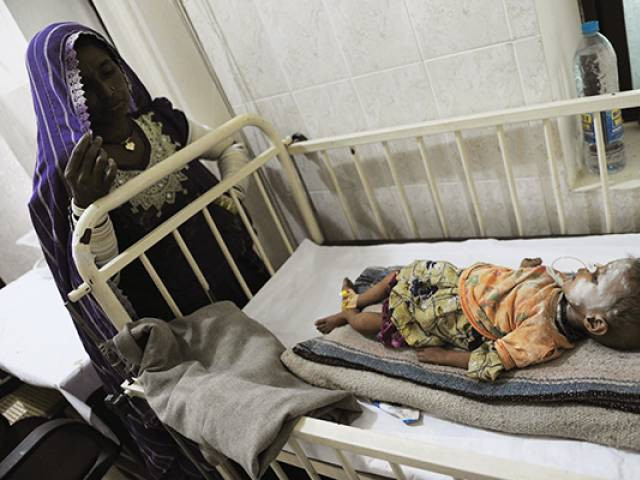Deaths in the desert
Most deaths are said to be occurring because of diarrhoea, pneumonia and other water-borne diseases

A file photo of Tharparkar Civil Hospital. PHOTO: AFP
Thar is undoubtedly a region with harsh terrain and extreme weather conditions, but while the climatic considerations and realities should be taken into account, the absence of doctors at medical facilities of the area can neither be explained nor justified. Most deaths are said to be occurring because of diarrhoea, pneumonia and other water-borne diseases, all of which are preventable if people are provided access to medical treatment in time. But how will this be ensured when the Sindh government itself refuses to acknowledge that there is a problem?
Chief Minister Qaim Ali Shah remarked last week that children were not dying because of drought because had that been the case, then adult men and women would be suffering too. It clearly escapes the chief minister that children are weaker and more vulnerable than adults and that regardless of whether they are dying due to drought or premature birth — as the chief minister claimed — the fact that they are dying due to preventable causes remains unchanged. While the Sindh government has worked on important development projects to bring electricity and water to the people of Thar, clearly a lot still needs to be done. What does not help, however, is that the PPP government never acts proactively before such crises erupt, and always adopts a defensive posture, trying to distract attention from the problem instead of recognising it and taking it on boldly.
Published in The Express Tribune, January 26th, 2016.
Like Opinion & Editorial on Facebook, follow @ETOpEd on Twitter to receive all updates on all our daily pieces.














COMMENTS
Comments are moderated and generally will be posted if they are on-topic and not abusive.
For more information, please see our Comments FAQ